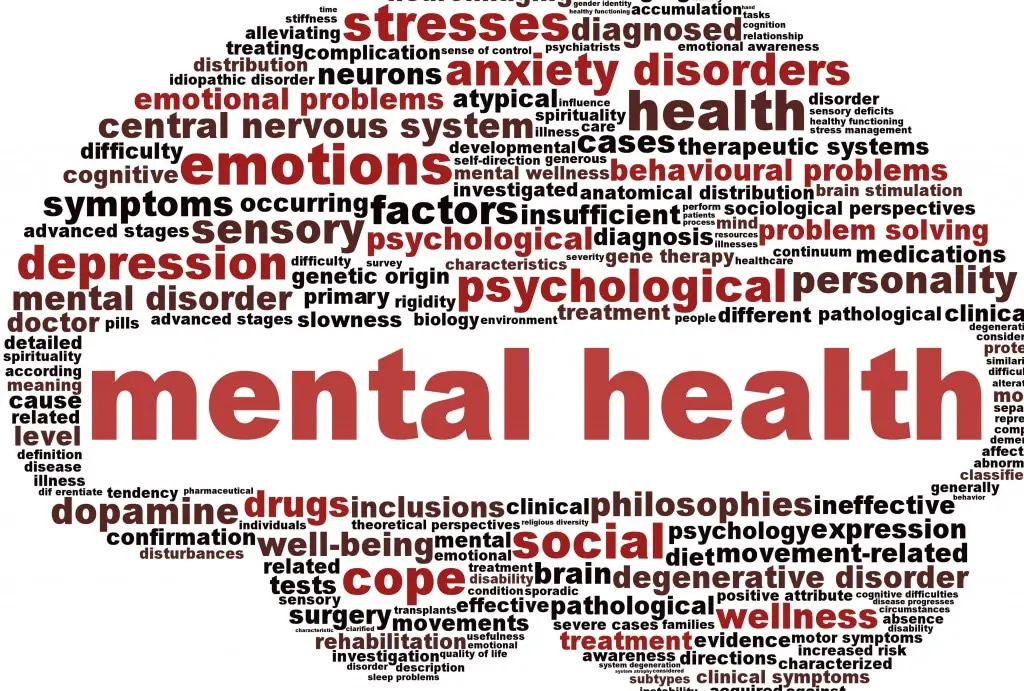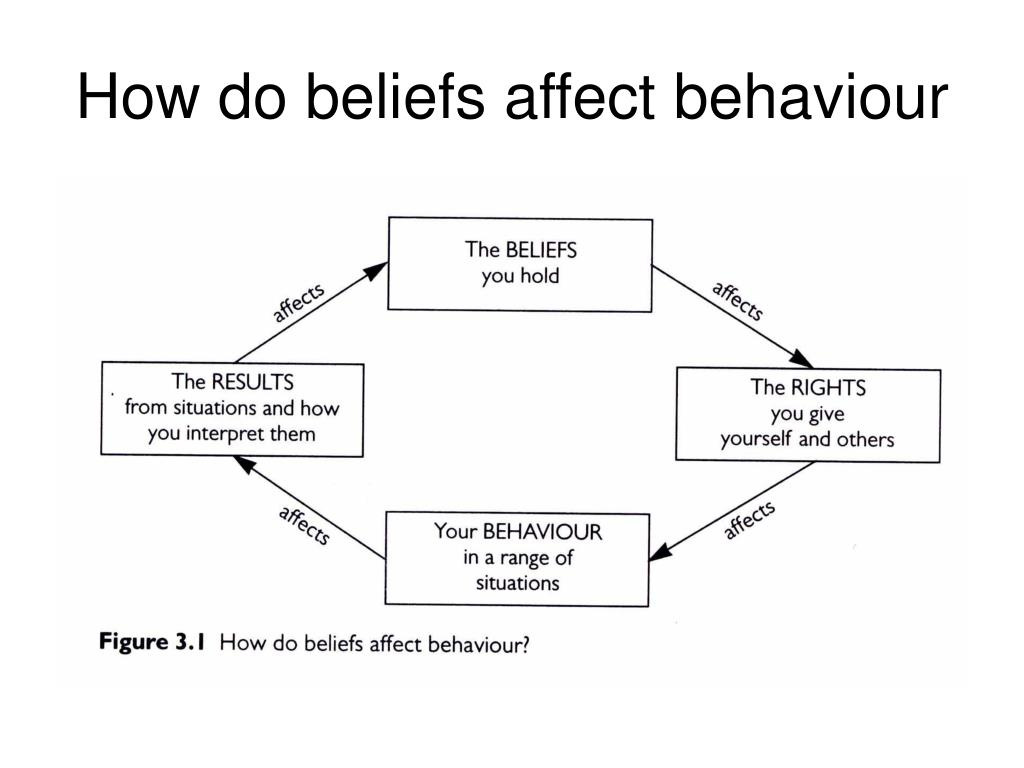Make someone’s day: Gift a subscription to your friends and family!
I believe that the biggest threat to future material progress is ideologies, and the negative effect that their favored public policies have on society.
Ideologies:
Undermine the decentralized results-based experimentation that is necessary for progress. Ideologies, particularly radical ideologies, seek to centralize power and subordinate that power to the dictates of their ideological vision.
Seek to implement policies that undermine the necessary preconditions for material progress.
Sabotage the means through which individuals promote their own Upward Mobility.
In a previous article, I explained where ideologies come from. I argued that ideologies do not come from rational decision-making. Instead:
Voters choose between ideologies based on their underlying psychological temperament (i.e. they use the non-rational part of their brain).
That temperament is largely determined by genetics, but parenting, culture, and life experiences also play a role. This explains why 30-60% of the variance in voting behavior is explained by genes.
But ideology is not exclusively non-rational. A person’s chosen ideology must also be plausible to:
the rational part of their brain
Their culture and social network
Note here that I say “plausible” instead of “true.” The non-rational part of our brain just needs to persuade the rational part not to object too much to any discrepancies between the ideology and observations of material reality.
That ideology must also project an image that a person wants to project to others.
Individuals try to “rationalize” their ideological preferences to others. By this, I mean that individuals try to construct rational reasons for their beliefs even though that is not actually how a person acquired those beliefs.
This rationalization is more Public Relations designed to persuade others rather than the actual reason why the individual chose that ideology.
See also my other articles and podcasts on Ideology:
Radical ideologies feast on mental disorders (this article)
Why Ideologies Threaten Progress (Part 1 of 3-part podcast series)
Why ideologies fail (podcast)
Descent into a man-made Hell: Understanding modern Totalitarianism
You might also be interested in reading my “From Poverty to Progress” book series:
What about radical ideologies?
If ideologies come from our underlying psychological temperament, it makes sense that radical ideologies stem from psychological temperaments that are very different from the norm. Psychologists call those psychological temperaments “mental disorders.”
Mental Disorders
Some people have a strong aversion to using psychology as an explanation for human behavior. While it is true that it is often a convenient excuse to hand-wave away others with different viewpoints, completely ignoring the existence of mental disorders is a big mistake.
We know the following:
Mental disorders exist
Those mental disorders are expressed in certain behaviors
Mild to moderate mental disorders are very widespread in the general population (the percentage of those with severe mental disorders is more controversial)
To believe that mental disorders do not affect politics and ideology is dangerously naive. While definitive evidence of a strong link between radical ideologies and mental disorders is lacking (largely due to a lack of investigation into the topic), there is strong enough evidence to realize that something important is going on.
Rather than try to figure out which individuals or groups have mental disorders, it is much more useful to come from the other direction. We should first ask ourselves:
What type of ideology would be most likely to appeal to someone with a specific mental disorder (regardless of how severe it is)?
So what are mental disorders?
According to the American Psychiatric Association’s Diagnostic and Statistical Manual of Mental Disorders (DSM-5). The DSM is essentially “The Bible” for the Psychiatric profession. Definitions of mental disorders in the DSM-5 consider these 5 factors:
A behavioral or psychological syndrome or pattern that occurs in an individual
Reflects an underlying psychobiological dysfunction
The consequences of which are clinically significant distress (e.g., a painful symptom) or disability (i.e., impairment in one or more important areas of functioning)
Must not be merely an expected response to common stressors and losses (ex. the loss of a loved one) or a culturally sanctioned response to a particular event (ex. trance states in religious rituals)
Primarily a result of social deviance or conflicts with society
Note: for the purpose of this article, I will use the term “mental disorders” instead of the more cumbersome “mental disorders and personality disorders.”
Cluster B personality disorders
The type of mental disorder that seems most likely associated with radical ideologies is Cluster B personality disorder. According to the American Psychiatric Association’s Diagnostic and Statistical Manual of Mental Disorders (DSM-5), Cluster B personality disorder consists of four disorders:
Antisocial Personality Disorder is “indicated by three (or more) of the following:
Failure to conform to social norms with respect to lawful behaviors, as indicated by repeatedly performing acts that are grounds for arrest.
Deceitfulness, as indicated by repeated lying, use of aliases, or conning others for personal profit or pleasure.
Impulsivity or failure to plan ahead.
Irritability and aggressiveness, as indicated by repeated physical fights or assaults.
Reckless disregard for safety of self or others.
Consistent irresponsibility, as indicated by repeated failure to sustain consistent work behavior or honor financial obligations.
Lack of remorse, as indicated by being indifferent to or rationalizing having hurt, mistreated, or stolen from another.”
Borderline Personal Disorder is “five (or more) of the following:
Frantic efforts to avoid real or imagined abandonment…
A pattern of unstable and intense interpersonal relationships characterized by alternating between extremes of idealization and devaluation.
Identity disturbance: markedly and persistently unstable self-image or sense of self.
Impulsivity in at least two areas that are potentially self-damaging (e.g., spending, sex, substance abuse, reckless driving, binge eating)…
Recurrent suicidal behavior, gestures, or threats, or self-mutilating behavior.
Affective instability due to a marked reactivity of mood (e.g., intense episodic dysphoria, irritability, or anxiety usually lasting a few hours and only rarely more than a few days).
Chronic feelings of emptiness.
Inappropriate, intense anger or difficulty controlling anger (e.g., frequent displays of
temper, constant anger, recurrent physical fights).
Transient, stress-related paranoid ideation or severe dissociative symptoms.”
Histrionic Personal Disorder is “five (or more) of the following:
Is uncomfortable in situations in which he or she is not the center of attention.
Interaction with others is often characterized by inappropriate sexually seductive or provocative behavior.
Displays rapidly shifting and shallow expression of emotions.
Consistently uses physical appearance to draw attention to self.
Has a style of speech that is excessively impressionistic and lacking in detail.
Shows self-dramatization, theatricality, and exaggerated expression of emotion.
Is suggestible (i.e., easily influenced by others or circumstances).
Considers relationships to be more intimate than they actually are.”
Narcissistic Personal Disorder is “five (or more) of the following:
Has a grandiose sense of self-importance (e.g., exaggerates achievements and talents, expects to be recognized as superior without commensurate achievements).
Is preoccupied with fantasies of unlimited success, power, brilliance, beauty, or ideal love.
Believes that he or she is “special” and unique and can only be understood by, or should associate with, other special or high-status people (or institutions).
Requires excessive admiration.
Has a sense of entitlement (i.e., unreasonable expectations of especially favorable treatment or automatic compliance with his or her expectations).”
Belief systems affect behavior
Mental disorders are primarily caused by genetics, but the behaviors that are exhibited by those with mental disorders are heavily affected by the beliefs of society and its institutions. Societies can have ideologies and religions that:
Sooth those with mental disorders, often with the belief in a God or gods
Focus the blame on something other than society or material conditions, often a supernatural being
Enable parents, peer pressure, and law enforcement to punish self-destructive and anti-social behaviors
Ideologies and religions often give moral credibility to institutions that keep those with mental disorders from getting into positions of power. In many cases, societies do terrible things to those with mental disorders, but the overall effect is to protect society from the worst behaviors.
Radical ideologies feast on mental disorders
Radical ideologies have the opposite effect. Rather than soothing mental disorders, radical ideologies aggravate mental disorders. I have come to believe that ideologies are the intellectual rationalizations of non-rational human psychology, and radical ideologies are the intellectual rationalizations of mental disorders.
I believe that radical ideologies stem from the mental disorders that I listed above. By that, I mean that the following types of people are far more likely than the norm to have mental disorders, particularly Cluster B:
Those who invent ideologies
Those whose ideological views are furthest from the rest of society
Those most active in politics and ideology.
I believe that most radical ideologies of both the Left and the Right:
Were created by very intelligent individuals with serious mental disorders. The most likely candidate for their mental disorder is anti-social disorder.
For the specific purpose of:
rationalizing their self-destructive and anti-social behaviors
moralizing those behaviors as being necessary for a higher cause.
blaming society or certain demographic groups for how they feel
sabotaging the ability of parents, peer pressure, and law enforcement to deal with their self-destructive and anti-social behaviors.
It seems likely that virtually every intelligent person with a serious mental disorder invents reasons why the problem is something other than their own mental disorder. The vast majority of rationalizations are dismissed by others as the ravings of a deluded person.
Only a very tiny portion of those systems of thought caught on with the larger population, but those that did have done great harm to society. Rather than society punishing self-destructive and anti-social behaviors, a significant portion of society either tolerates or valorizes them as for the greater good. The more persuasive the ideology, the greater the destruction.
Ignore the sweet words, look at the behaviors and the emotion
Ideologues want you to focus on their words and their claims to “good intentions.” Do not fall for it. Hit the mute button. Ignore their words. Instead, focus on their behaviors and their displayed emotions. Behaviors and emotions betray their real intentions.
Ideologies create “social camouflage” to distract people away from self-destructive and anti-social behaviors and focus on their sweet words. Radical ideologies are world views invented by those with severe mental disorders to further their interests.
They are like magicians who wave their hands and talk flamboyantly to distract the audience from what is really happening. The stated goal of ideologues is not their actual goal. The stated goal is the excuse to do harm to others and not get punished for it.
Radical ideologies consist of very intelligent persons with mental disorders manipulating other people:
with serious mental disorders, plus
a much larger group of people with similar though milder mental disorders.
I believe that radical ideologies:
Organize mental disorders (by bringing those with mental disorders together for a common cause)
Rationalize mental disorders (i.e. transform unorganized mental impulses into something that can convince other people who have milder disorders)
Create targets for mental disorders (by blaming a specific demographic group for problems in society).
Legitimize anti-social and self-destructive behaviors as being for a higher cause.
Sabotage the ability of parents, peer pressure, and law enforcement to punish self-destructive and anti-social behaviors stemming from mental disorders
All of the above sabotage the ability of society to control those with mental disorders or tendencies towards those mental disorders. A single person with a mental disorder is bad for family, friends, and co-workers, but an organized group of people with mental disorders and a persuasive argument to explain their anti-social behaviors is dangerous to all of society.
The result is to create a political movement of people with varying levels of mental disorders who are united by a common purpose of:
Taking over the government
Expanding and centralizing that government so that it controls virtually all other institutions in society
Enabling their followers to dominate the upper and middle levels of those institutions
Shutting down the ability of people with alternative world views to communicate with the rest of society
Punishing the demographic group that the ideology blames for all of society’s problems
(in many cases) Commit mass murder.
The desired result is to transform mental disorders and their most self-destructive and anti-social behaviors into the norm for society.
Totalitarian societies
Radical ideologies are bad enough when they form a political movement, but they become profoundly toxic when they control the government. They create what Polish psychiatrist Andrzej Łobaczewski calls pathocracy. Pathocracy is when those with mental disorders occupy positions of power. This is particularly dangerous in Totalitarian societies where the government controls virtually all institutions in society. It leads to political repression, war, censorship, and genocide.
In a Totalitarian society, those with mental disorders with the most intelligence and verbal ability manipulate and intensify the disorders going on inside many people’s brains to further their power and status.
I cannot prove it, but it seems a reasonable assumption that the Totalitarian regimes of National Socialist Germany, Fascist Italy, and numerous Communist regimes had leaders, early joiners into the movement, and their most dedicated followers who were far more likely to have serious mental disorders than the overall population. To be clear, once the regime was established, many people joined the party and government merely to further their own careers, but they still had to stay within the bounds of their ideology.
Totalitarian regimes are mental disorders established in material reality. And for this reason, they are all doomed to fail. Eventually, all ideologies must confront material reality, either by losing supporters or complete regime collapse.
Rebirth of the Totalitarian Left
One might think that Totalitarian ideologies are something that disappeared in the 20th Century, but, unfortunately, this is not true.
In a previous article, I argued that over the last 10 years, the United States and some other Western nations have experienced a Rebirth of the Totalitarian Left. Whether you call it “Critical theory,” “Woke,” “Critical Social Justice,” or some other term, it is a trend of great political consequence.
Granted Critical theory is a form of Totalitarianism that is quite different from Totalitarianism of the 20th Century. Or more accurately, the ends of a utopian society with ideologues in control are the same, but the means of achieving those ends are radically different.
Unlike previous versions of totalitarians, Critical theorists do not desire to achieve power via violent revolution, military conquest, or coup d’etat. Traditional totalitarians want to overthrow the government and then use the power of the government to force all institutions in society to become propaganda devices.
Critical theorists bypass the upper rungs of government and go straight for the bureaucracy. Their goal is to capture the middle rungs of all American institutions and turn those institutions into propaganda devices.
I believe that Critical theory, like all radical ideologies, feasts on mental disorders. Material progress has solved, or at least lessened the severity of so many problems. But it has done little to treat mental disorders and personality disorders.
I believe the core of what is happening is that a significant proportion of the American professional class has embraced or at least tolerated a new Totalitarian ideology of the Left. The ideology has become widespread enough among those with four-year college degrees, that it has permeated many if not most American institutions. American institutions are increasingly becoming islands of groupthink where a significant portion of employees believe that one of the primary institutional goals is to propagate their ideology.
This is leading to dysfunctional decisions that are undermining the decision-making process of our institutions. The result is our institutions are undermining:
The necessary preconditions for material progress.
The ability of youths from lower-income families to make life choices that enable them to enjoy the material progress that surrounds them.
Our institutions are increasingly focused on displaying “good intentions” as defined by ideologies rather than the result-based experimentation that is necessary to promote material progress. This will not end well.
See also my other articles and podcasts on Ideology:
Radical ideologies feast on mental disorders (this article)
Why Ideologies Threaten Progress (Part 1 of 3-part podcast series)
Why ideologies fail (podcast)
Descent into a man-made Hell: Understanding modern Totalitarianism
You might also be interested in reading my “From Poverty to Progress” book series:














This is a really interesting framework, my only concern is with "medicalizing" political beliefs a la drapetomania or whatever the Soviet name for "he's crazy, he thinks he's not free under Soviet rules" was.
My takeaway from this is that I don't have to be so annoyed when people make terrible political arguments, they're not necessarily dumb or malicious, they're just using their intellect as a personal defense attorney to explain how they feel in lofty terms.
I think you can also make the case that most of the world's religions today began from the bizarre ramblings of monks who took drugs. Unlike the typical homeless person preaching to no listeners, this became institutionalized by ancient human clans or ancient civilizations thousands of years ago.